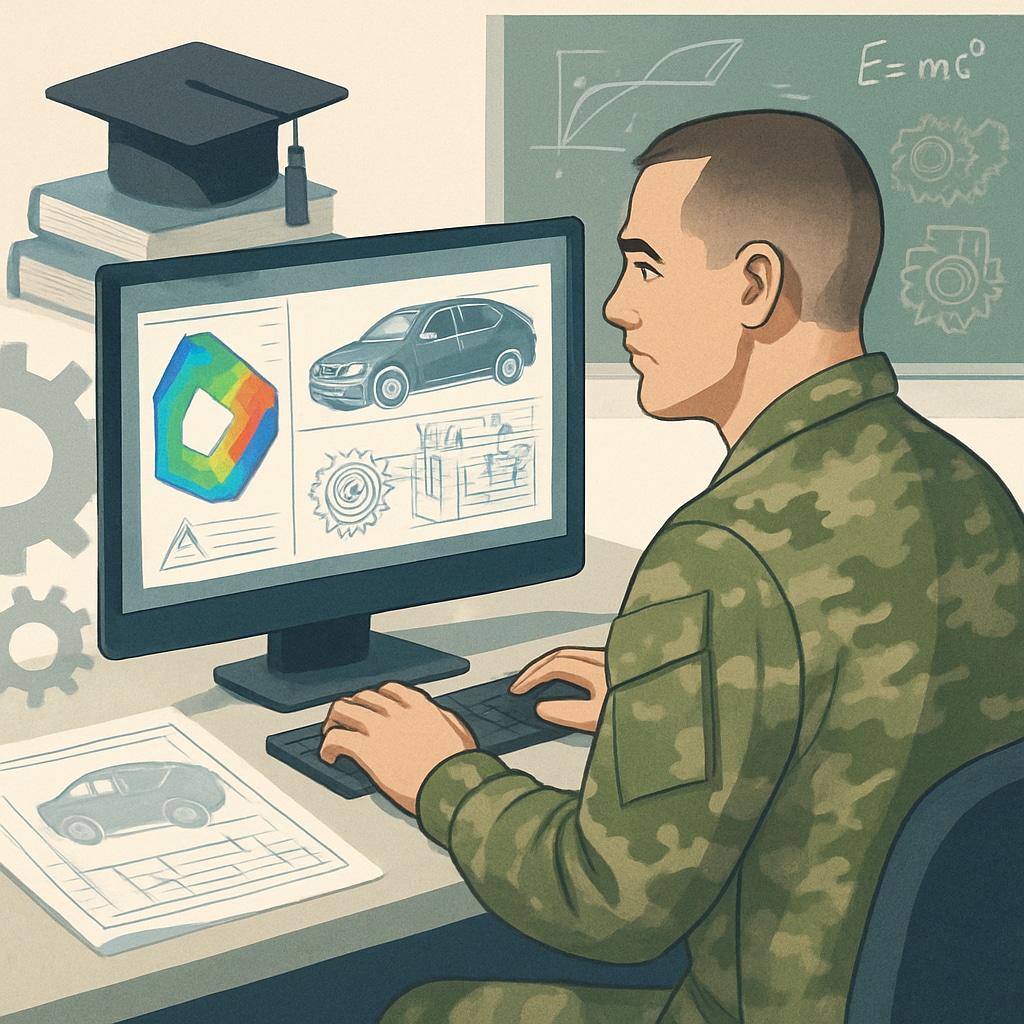The transition from an associate degree in automotive technology to a bachelor’s degree is a strategic move for military personnel seeking career advancement. By understanding credit transfer strategies, finding compatible degree programs, and addressing potential challenges, military members can successfully navigate this educational journey. Below, we outline the best practices and options available for those looking to build on their automotive technology background and pursue higher education.
Choosing Compatible Majors for Automotive Technology Graduates
Military personnel with an associate degree in automotive technology often wonder which bachelor’s degree complement their existing knowledge and skills. While automotive engineering is a natural fit, other options include mechanical engineering, industrial technology, or even business administration for those interested in management roles within the industry.
- Automotive Engineering: Builds on technical expertise and focuses on designing and improving automotive systems.
- Mechanical Engineering: Offers broader engineering concepts applicable to various industries, including automotive manufacturing.
- Industrial Technology: Ideal for roles in operations management, manufacturing, and quality control.
- Business Administration: Perfect for military personnel looking to transition into leadership or managerial positions.
Choosing the right major often depends on individual career goals and interests. For example, those aiming for hands-on technical roles may prefer engineering, while individuals looking for leadership might opt for business-focused degrees.

Understanding Credit Transfer Policies
One of the most critical aspects of moving from an associate to a bachelor’s degree is understanding credit transfer policies. Many universities offer credit recognition programs specifically designed for military personnel, helping them avoid redundancy and save time.
Here are some tips to streamline the credit transfer process:
- Evaluate Accreditation: Ensure your associate degree is from an accredited institution to maximize transferability.
- Use Military Education Benefits: Programs like the GI Bill may also support credit recognition and tuition coverage.
- Research Transfer Agreements: Some schools have articulation agreements with colleges offering associate degrees in automotive technology.
- Consult Academic Advisors: Advisors can help map out a degree plan and identify transferable credits.
Effective credit transfer ensures that military personnel can build on their existing education rather than repeating courses.

Overcoming Challenges in the Transition
Transitioning from an associate degree to a bachelor’s degree can come with challenges, especially for military personnel juggling service obligations. Common hurdles include adapting to academic environments, managing time effectively, and navigating financial aid options.
Here’s how to overcome these obstacles:
- Time Management: Balance military duties and coursework by choosing flexible online programs or evening classes.
- Financial Planning: Leverage military benefits like the GI Bill or tuition assistance programs to reduce costs.
- Seek Support Networks: Many universities have dedicated veteran support offices to assist with academic and personal needs.
- Prioritize Self-Care: Ensure physical and mental well-being during the transition to avoid burnout.
Addressing these challenges proactively allows military personnel to focus on their long-term educational and career goals.
Long-Term Benefits of a Bachelor’s Degree
Pursuing a bachelor’s degree after completing an associate degree in automotive technology opens the door to new opportunities. Career advancements, higher earning potential, and expanded knowledge are just a few benefits.
For example:
- Career Opportunities: Bachelor’s degree holders qualify for positions in engineering, management, and research.
- Salary Increases: Higher education often translates to greater earning potential.
- Industry Recognition: A bachelor’s degree adds credibility and professional standing within the automotive field.
As a result, military personnel can leverage their unique skills and experiences to achieve success both academically and professionally.
Readability guidance: We’ve used short paragraphs and bullet points to ensure clarity. Overcoming challenges, understanding credit transfers, and selecting the right major are key sections designed to help military personnel plan their educational path effectively.


